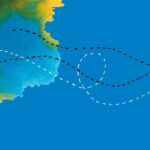Geographic Origins
The People’s Republic of Bangladesh is in southern Asia. It is bordered to the west, north and east by north-eastern India, and has a southern coastline on the Bay of Bengal.
History of Immigration and Settlement
Bengalis were prevented from entering Australia by the Immigration Restriction Act of 1901, better known as the White Australia Policy. The act was relaxed after 1967, and abolished in 1973. The first Bengali immigrants came to South Australia to escape the 1971 civil war between West and East Pakistan. They were later joined by family and friends.
The majority of Bangladeshi South Australians live in metropolitan Adelaide. Bangladeshis continue to immigrate to South Australia in search of employment opportunities.
Community Activities
The Bangladesh–Australia Society of South Australia was formed with the assistance of Dr Amzad Hossain Mian and Mr Rafiqul Islam who were its Founding President and General Secretary respectively. Dr Mian prepared the Constitution of the Society which was approved on 23 April, 1984.The society aimed to provide a focus for social, cultural and religious life among Bangladeshi South Australians and to assist members with matters of economic welfare. The society meets in various venues including community halls, suburban parks and private homes.
Apart from various religious celebrations the main events celebrated by the Bangladesh-Australia Society are Australia Day, National Day, Bangladesh Night and Victory Day.
On the Australia Day holiday in January Bangladeshi South Australians raise the Bangladeshi and Australian flags and get together to play outdoor sports such as cricket and soccer.
Bangladesh National Day is on 26 March. On this day in 1971 Bengalis declared the independence of East Pakistan, which they renamed Bangladesh. Members of the society give speeches on the theme of the emergence of Bangladesh as a nation and participate in discussions.
Bangladesh Night is held in September. It is a celebration of Bangladeshi culture where public events are held to share Bangladeshi food, music, dance and costume parades.
Victory Day, 16 December, commemorates the surrender of West Pakistan in the civil war of 1971 and the full independence of Bangladesh. It is celebrated with thanksgiving, outdoor and indoor sports, and treats for children and a community meal. Typical Bangladeshi foods include: curries; dahl, a dish made from lentils; chamucha, spicy pastries filled with meat or vegetables and yoghurt sweets.
The majority of Bangladeshi South Australians are Muslims with a small number being Hindus.
The most significant festival for Bangladeshi Hindu South Australians is Nava Ratri, which falls in October or November. Nava Ratri focuses on Shakti, the mother goddess. Its celebrations at Ganesha Temple are organised by Bangladeshi Hindu South Australians and include poojah ‑ worship ‑ and social gatherings.
Organisations and Media
- Bangladesh–Australia Society of South Australia Inc.
- Adelaide Mosque Islamic Society of South Australia Inc.
- Islamic League of Australia Inc.
- Islamic Society of South Australia
- Renmark Islamic Society
- Hindu Society of South Australia Inc. ‑ Ganesha Temple: publishes Turiya Marga, a quarterly newsletter
Statistic>
In the 1986 census 38 people stated they were of Bengali descent.
According to the 1991 census there were 62 Bangladeshi-born South Australians. Forty-seven people said that their mothers were born in Bangladesh, and 44 said that their fathers were.
According to the 1996 census the number of Bangladeshi-born people in Australia almost doubled between 1986 and 1991 and doubled again in the early 1990s. South Australia has followed the national trend with 122 Bangladesh-born people in South Australia in 1996.
The 2001 census recorded 120 Bangladeshi-born South Australians, while 129 people said that they were of Bengali descent.
The 2006 census recorded 317 Bangladeshi-born South Australians, while 327 people said that they were of Bengali descent.
The 2011 census recorded 1,285 Bangladeshi-born South Australians, while 1,076 people said that they were of Bangladeshi descent, and 207 said that they were of Bengali descent.
The 2016 census recorded 1,967 Bangladeshi-born South Australians, while 1,764 people said that they were of Bengali descent.





Comments